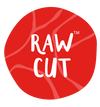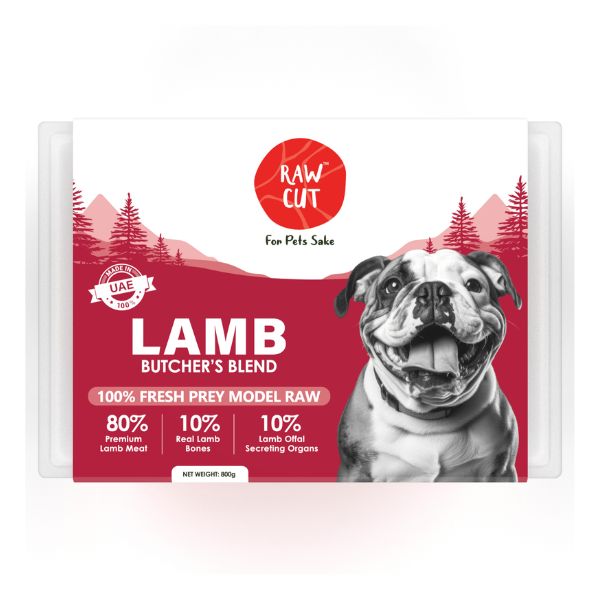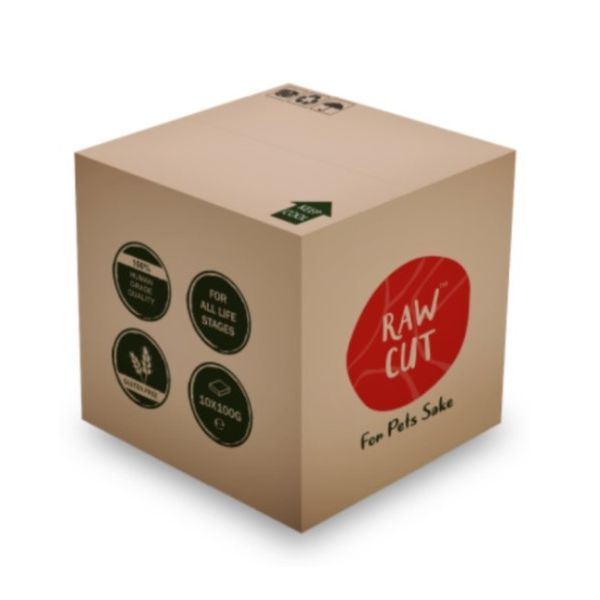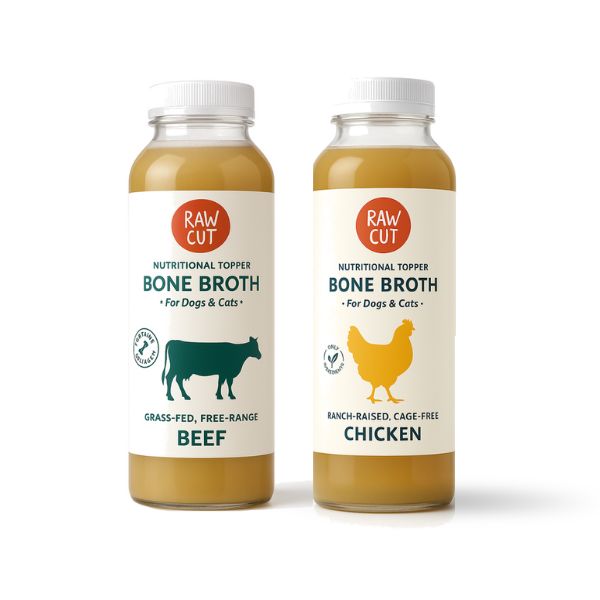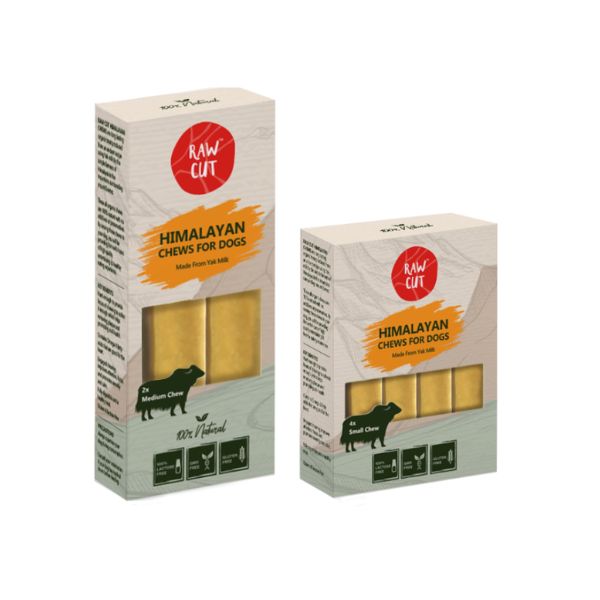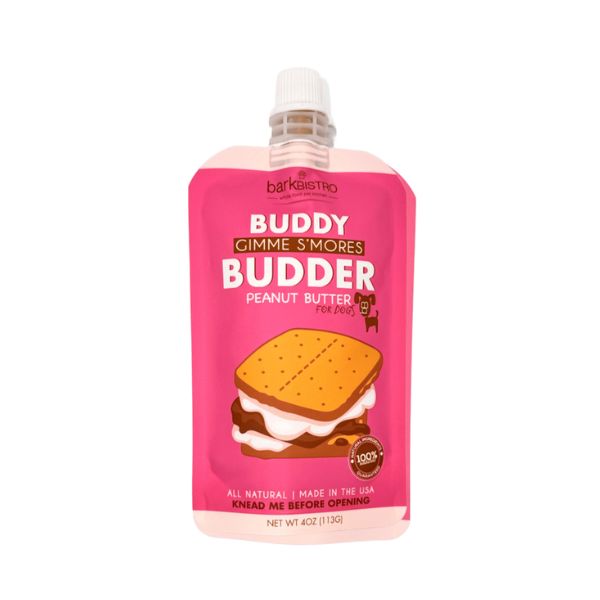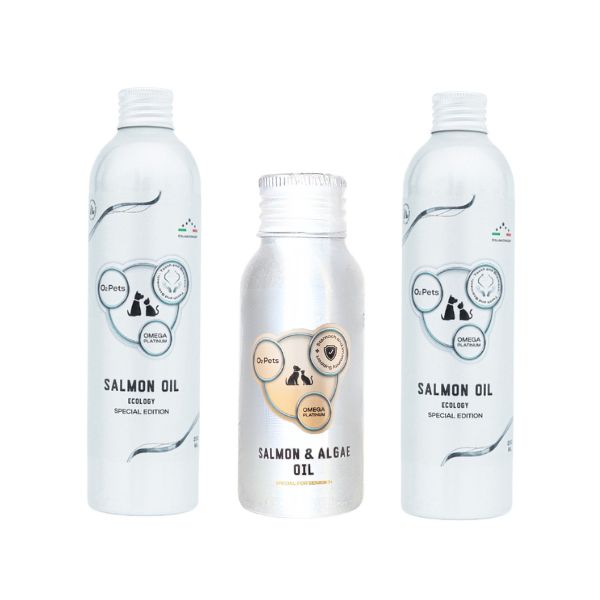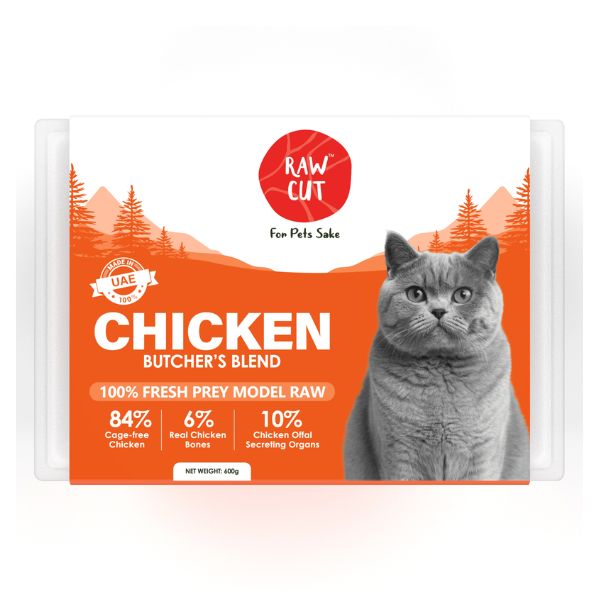The Dog Nutrition

The wolf is the dog’s ancestor. To survive it had to hunt, as did man, for that matter. Dog may have become differentiated from the wolf over time, but its digestive system and dentition are still very similar. This observation can lead to several essential deductions about nutrition for the dog.
You already know that your dog is a hunter, a meat-eater. But although vegetarian food isn’t really his thing, he still needs more than just meat. Remember, wolves, the dog’s ancestors (they have 99.8% DNA Match) eat the contents of their prey’s stomach because it contains grains, vegetables and fruit. If you want a playful and fit dog, you need to ensure he is getting his energy from the right combination of proteins, fats, carbohydrates, vitamins and minerals. A balanced diet is made up of 70% to 85% muscle meat, offal and bones, and 15% to 30% of unlocked grains and vegetables. It is natural to have this amount of variation, since a prey’s stomach contents also vary.
In the wild: Prey animals eat the grains and vegetables raw, these are pre-digested in their stomachs. When the wolf eats the stomach of the prey, he can digest the grains and vegetables that are in the stomach because they are pre-digested.
Not in the wild: Unlocked grains means that the cereal grain is steamed (replicating pre-digested grains in the prey stomach), so that a large proportion of the vegetable proteins can be absorbed by the dog. Cereals contain starch (carbohydrates), which is present in the core of the cereal grains. During the production process of balanced dog food, by grinding and heating, the starch from the cereal grain is 'opened up', i.e. made available for digestion in the small intestine.
Example: We cannot eat a raw potato. potato must be steamed or cooked to make it digestible.

PROTEINS ARE THE BODY’S BUILDING BLOCKS
As with humans, a lot of a dog’s physical functions are dependent on proteins. Proteins are important for building and repairing muscle, coat and organs.
- Producing hormones.
- Maintaining a healthy immune system. Antibodies, the soldiers that attack viruses and bacteria, are made up of proteins. A shortage of proteins means a shortage of soldiers and consequently lower resistance and greater susceptibility to illness.
- The transport and storage of molecules in the body.
Proteins themselves largely consist of amino acids. Your dog has 22 of them, of which he can produce 10 himself. The other 12 must come from his food. These 12 are also known as essential amino acids. They must be present in the right proportions and amounts in your dog’s food. If one or more of these essential amino acids is missing, it disrupts the production of the other amino acids in the body. The result? Hair loss, weaker muscles, itching and behavioural problems. Over the long term it can even be life-threatening. Proteins are either of animal or vegetable origin.
It is important for a dog to get his proteins from raw meat and offal. That way, they will be digested completely, and you can rest assured that your faithful friend is absorbing all the essential amino acids.
FATS: A SOURCE OF ENERGY
Your dog can’t survive without fats. It’s important for your dog that these are of animal origin. Fats consist of fatty acids and are split into saturated and unsaturated fats.
Saturated fats are stored as a reserve in the muscles and can be drawn upon when cold, during prolonged periods of physical exertion, in times of nervousness, anxiety or stress. In short, your dog draws upon these reserves when he needs more energy than he can get from his food.
Unsaturated fats ensure your dog can think and function normally and give him a beautiful shiny coat. They are also known as essential fats or fatty acids. Essential because a dog can’t produce them himself and so must get them from his food. Several fatty acids are just as important as vitamins because they enable the body to build cells or to produce certain hormones. One example of this are the omega-3 fatty acids. Normally, your dog will have enough saturated fat in his body. Fat dogs even have too much. Often, unsaturated fats are not present in enough amounts, or are used incorrectly. Why is that?
Because they are sensitive to heat and are lost during the food production process. Some dog food manufacturers therefore use vegetable fats. So, if your dog needs energy, he uses his stocks of unsaturated vegetable fats. That upsets the balance because there are not enough unsaturated fats left over to be used for their intended purpose: to maintain the brain and the coat. This can then result in behavioral problems, a dull coat and itchy or peeling skin. That is why it is important for your dog to eat animal fats.
CARBOHYDRATES AND RAW FIBRE: MUCH NEEDED
Carbohydrates are energy producing nutrient. During digestion, carbohydrates are broken down into glucose which travels through the bloodstream and provides quick energy to requiring cells. They are stored in small amounts in your dog’s muscles as glycogen and are used for short and quick bursts of energy.
Carbohydrates also keep the proteins in check. All the elements in the protein that aren’t useful, are stored by your dog’s body as fat. This is called the protein fraction. If it is too high, the degree of acid increases and your dog becomes nervous and in the worst case uncontrollable, so it is a misconception that grains are bad for dogs. On the contrary, they represent one of the best sources of carbohydrates.
The difficulty is that a dog can’t digest carbohydrates that are primarily of vegetable origin, since dogs don’t have the enzymes needed to break down cellulose. Consequently, a dog can’t get any nutrients from raw vegetables. That is also the reason why wolves eat the stomach contents of their prey. These contain grasses that are in seed form, or in other words, grains. These are in fact pre-digested. We call these ‘unlocked’ grains and they are the best source of carbohydrates for your dog.
Some people claim carbohydrates from grains to be ‘empty fillers’, but that’s scientifically not true. While it is true that some carbohydrate sources found in processed commercial kibble can lack digestibility and be less nutritious, on the other hand Unlocked grains that produce digestible high-quality carbohydrates are an excellent source of energy when used in dog food.
Carbohydrates that contain fibre also play a healthy roll in digestion and bowel health and research has shown that they can be a great tool in regulating bowel movements, weight control, and in helping regulate diabetic dogs while on insulin therapy.
VITAMINS: VITAL
It’s simple. No vitamins, no life. That’s how important they are. Vitamins are necessary for amino acids to be absorbed properly. An excess of vitamins is not good, and a shortage can also cause problems. So, it’s important to get the balance right. There are two big groups of vitamins: water-soluble and fat-soluble. In the water-soluble vitamins, B-group vitamins give a shiny coat. Some of these vitamins are very sensitive to heat. When they are heated, they lose their strength. In the production of dry food, this problem is helped by putting a protective coating on the vitamins before they are added. It is true that as a result some of the vitamins then survive the production process, but not all dogs can break down the coating during digestion. If this doesn’t happen, these important vitamins are lost and your dog can develop problems with his coat, such as having an extended mounting season. The fat-soluble vitamin A is very important to a dog’s coat. It is only present in animal products. It is particularly important to ensure that spayed and castrated dogs absorb enough of this vitamin. They tend to become fat and so are given less to eat. And because they eat less, they absorb less vitamin A. Biotin or vitamin H is important to the coat.
MINERALS AND TRACE ELEMENTS: FOR STRONGER BONES AND GOOD REFLEXES
Calcium, natrium, magnesium, sodium, magnesium, potassium and phosphorus are the best-known food minerals.
Calcium and phosphorus are also essential for bone formation and for maintaining good muscle and nerve functions. Dogs need trace elements such as iron, iodine and zinc in extremely small amounts, but they are nonetheless essential. They stimulate growth and support the metabolism.
PERFECT BALANCE IN AMINO ACIDS
Fats and proteins come from fresh chicken, beef and lamb meat.
Ten amino acids are essential for the adult dog. A young dog needs more Arginine and Histidine, or 12 amino acids during its growing phase. In nature and in natural dog food, this is not a problem, because fresh meat contains all the amino acids in the right proportion. At least, if there is a good balance between muscle meat and organs, as in Raw Cut.
The amino acids will also be kept intact in non-heated processed foods, as is the case with Raw Cut unlike dry food for dogs. Fats from poultry provide more unsaturated essential fatty acids.
The natural meat juices in raw food offer two major advantages, namely they:
- Provide the most digestible iron
- Make the intake of huge quantities of water superfluous, because drinking too much dilutes the gastric acid, and this does not benefit digestion.
